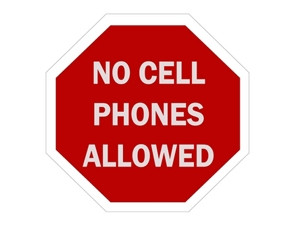
Last night, with the world's eyes on the country, the South African government used technology one of its own bodies declared illegal - as far back as 2002 - to effectively censor coverage of the State of the Nation Address (SONA).
Allegations of cellphone jamming delayed the start of president Jacob Zuma's SONA by around 15 minutes as members of Parliament raised a point of order because no mobile signals were available in the house. Opposition members chanted "give back the signal" and insisted the evening could not proceed without free access to frequency.
The incident has made global headlines, and has many, on social media, demanding answers as to who authorised the jamming, and bemoaning the censorship as infringing on SA's democratic principles. Yet, it is not clear whether the Independent Communication Authority of SA (ICASA) will instigate a probe into the debacle.
Own goal
Broadcasting body, the SOS Coalition, notes Parliament, the highest legislative body in the land, has contravened a law it "passed in that very chamber". It explains the Electronic Communications Act mandates ICASA to prevent harmful interference to radio signals.
In 2002, ICASA prohibited jamming devices, and reiterated this view in 2011 and 2012, when it stated: "No organisation is allowed to jam cellular signal, and any device which is used to jam signal is illegal."
ICASA spokesman Paseka Maleka this morning said jamming was prohibited, apart from use by National Security Cluster Departments. He welcomes the Parliamentary investigation, and adds ICASA may institute its own investigation into the matter if needed.
Won't happen
However, says ICT veteran Adrian Schofield, the incident will never be probed. "It will get swept under the carpet, there won't be a meaningful probe, and we'll never find out who took the decision."
Schofield says the issue should be a test for ICASA, but will not be because the authority continues to lack independence and has been toothless for quite some time. "More and more, it's just sitting there, watching life go by."
ICASA falls under the Department of Communications (DOC), which has been described as the "propaganda ministry" since Zuma's unexpected decision to split the old DOC into two last May, creating the current DOC and the Department of Telecommunications and Postal Services. Schofield says ICASA will not go against its oversight body, or the party line, despite having a duty to uphold the law.
Outcry
The unprecedented jamming has been slammed by several people and organisations as not being democratic. Press Gallery Association chairman Thabo Mokone says the association will write to speaker Baleka Mbete to ask who authorised the blocking, which amounts to censorship. "We were just shut out."
Mokone says the scrambling of cellphone signals, which left the press unable to communicate via phone or e-mail, is not in line with SA's laws and is unconstitutional. He says whoever authorised it must be dealt with, and the body will explore lodging a complaint with ICASA. "This is scary stuff indeed; it has no place in the democratic order."
Media24 has also followed the legal route over the incident, with the media organisation yesterday issuing a written notice to Parliamentary spokesman Luzuko Jacobs via its attorneys demanding signal be restored just before Zuma took to the podium. The SOS Coalition, which has members such as broadcasters, civil society bodies and trade unions, wants answers and punishment for those guilty of jamming, it says in a statement.
It is still not clear exactly what device was used to do the jamming, although pictures of the alleged tech are doing the rounds on social media. Mokone says these claims have not been established "as a matter of fact". Yet, he says, there is no doubt the cellphone signal was blocked because it became available shortly after Mbete sent the secretary to investigate.